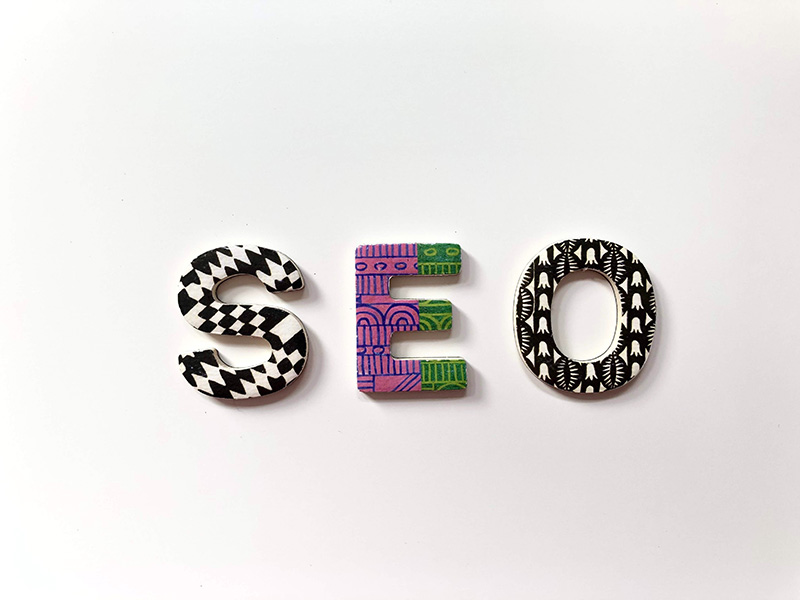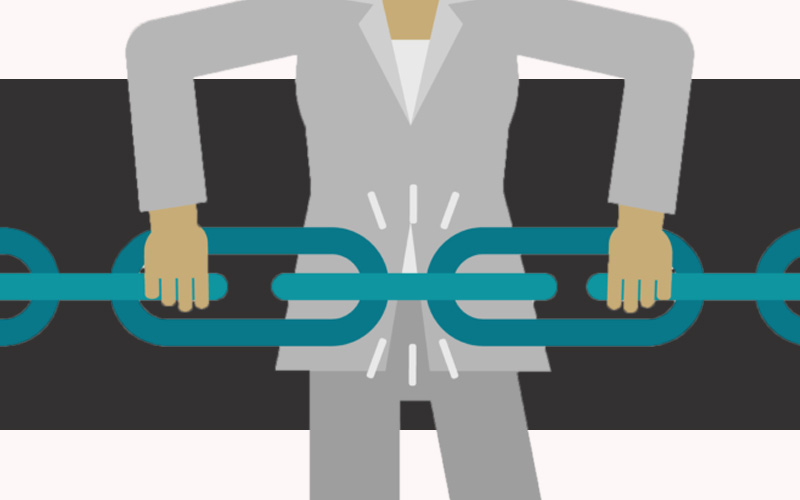The online landscape is constantly changing, and this is largely thanks to Google. When Google releases a new search, posting and linking algorithm update, it’s worth paying attention. Particularly, if you are operating as a freelancer, guest blogger or you are creating promotional posts. It will impact how you are going to be able to use SEO to your advantage and build up your ranking or following online.

That brings us neatly to link building. Link building has been a key tool for quite some time. However, it’s important to adopt the right policies and ensure that you are following the latest updates.
In September, Google announced significant changes to link building that are worth considering.
What Changes Were Implemented?
15 years ago, Google introduced the Nofollow attribute. This was designed to help spam in the comments. It was ideal for flagging sponsored and advertised links. The aim of the new link building update is to evolve this further.
To do that, Google has brought in two new link attributes. These are designed to help people note the purpose of links. The following attributes now include:
Rel=sponsored. This is for links that are part of compensation agreements, sponsorships or advertisements.
Rel=UGC – Suitable for user-generated content. This could include comments or potentially forum posts.
rel=nofollow – This is ideal for cases where you want to link to a page without an endorsement. This means there will be no passing credit to another page.
During the point when NoFollow was introduced, links flagged would not be marked for the search algorithm. However, that has now changed. Every link attribute determines whether a link is considered or excluded from the search.
Google believes this is a better system than simply ignoring the links which were the original concept of the NoFollow. The company has suggested that these links will contain valuable information to help the engine improve searches and understand linking patterns that are unnatural. This still ensures that certain links are ensured not to be given the weight of a first-party endorsement.
So, how will these changes impact you?
Google has already clearly pointed out that aside from sponsored links, there is no right attribute that you should be using. It depends completely on how you want your links to be viewed.
The main impact of flagging a link in a different way would be that the link may not be credited for another page. As such, there is typically no reason to change non-ad links that may have already been marked as a NoFollow.
Ideally, using ‘sponsored’ would be the right option for an ad or sponsored link. However, you can keep it as ‘NoFollow’ and see very little impact.
This is the official stance of the search engine giant. Despite this, there are lessons to learn and strategies you can consider from this change.
What Is the Current SEO Landscape for Link Building?

We often assume that SEO is quite complex. However, in terms of link building the situation is quite simple.
The more regular links you have, the better off you will be in terms of rank building. There are lots of tools online that you can use to find out how many links you have.
When you are link building, if there are links that are paid for or for use with guest posting, Google wants to make sure that you NoFollow those links.
The reason for this is that they expect you to make sure that you are not leveraging tactics such as guest posting to impact ratings.
As well as this, you need to make sure that you avoid paying for links completely. This is a major faux pas in terms of SEO. It’s one of the quickest and easiest ways to get hit with a Google Penalty. If you can, you should be taking these necessary steps to avoid this.
Google’s Approach to Links

It shouldn’t come as a shock that the algorithm Google use is both clever and advanced. As such, you can run into issues if you are not taking the right steps with links.
Google is easily able to recognize when a post on a site, a guest post, hasn’t been earned and may have instead been bought.
It’s easy for the search engine giant to do this because a guest post will usually be tagged as written by a guest contributor or perhaps a former contributor.
This also means that Google will quickly be able to ascertain whether a link has been earned or if is completely natural.
When Google chooses not to disclose a link from an author of a post, they will then simply ignore it.
So, it doesn’t matter where a link is NoFollow or Follow. If a post is referenced as such, Google will be able to determine whether it should be impacting your search ranking.
The Changes Explained
The new policy is to make sure that links have been paid for are now marked as sponsored. This goes beyond the typical text that Google can view and understand on the site itself. That’s what rel=’ sponsored’ is for.
The other attribute, rel=’ugc’ is another way to show that this shouldn’t be used but for a different reason compared with sponsored links.
When Does This Change Come into Effect?
If you want to make changes to existing links or you are keen to make the right choices here, then there’s good news. It doesn’t come into effect until March 1st, 2020. It’s also worth keeping in mind that you are under no obligation to change older links.
They can stay as NoFollow. It’s new posts that you need to consider using the right attributes for.
Furthermore, you should also make sure that you understand that making a ‘mistake’ won’t change things that much. So, if you choose ‘NoFollow’ instead of ‘sponsored,’ you’re not going to see a huge change. Particularly with reference to SEO. The only thing that you need to make sure of is that you are marking NoFollow links correctly.
Ideally, the aim here is simple. Google wants to know whether they should or shouldn’t crawl a link based on the attribute you use. This is also going to help them determine how the link you use should be analysed for SEO or indexing purposes.
What About the SEO Impact?

Of course, the major consideration for freelancers, guest bloggers, and promotional posters is going to be how this is going to impact SEO.
We are already aware of Google’s reasoning. They believe the change is going to help people understand how to index links more on a broader scope. For instance, it’s possible that thousands of people start to use rel=” UGC,” specifically for guest posts. If that’s the case, Google can then use this information to see that these posts shouldn’t be counted.
Now Google is already able to ascertain certain types of user-generated content. This includes everything from wikis to forums, however, this is just going to help increase the accuracy up to another level.
It’s not just about tightening things up either. This is also going to help them decide whether they should be more lenient. For instance, they might ultimately decide UGC links should be counted but at a third of the weight compared to follow links.
Is Perfecting Your SEO Tactic the Most Important Element?

It’s worth noting that Google is never going to be searching for a website that provides the perfect SEO. They are attempting to provide users with the best experience possible.
This could mean that a site that has ‘perfect SEO’ doesn’t rank as high as a site that is providing more quality.
So, beyond link building, you need to make sure that you are focusing on incredible user experiences. You must ensure that you are building beautiful, targeted content and working to beat your competition.
This is always going to start at the title of a piece of content. By doing this, you can make sure that you build a title around your keywords while still matching it to the content. Ultimately, it ensures that you are providing the quality that your users want while providing you the greatest chance of gaining a high ranking.
How Important Is Link Building?

Ultimately, you need to consider how important link building is to the general scope of your SEO campaign. This should be a consideration, every time you create a new piece of content.
The answer might surprise you. There are countless reports online that suggest link building, as an SEO tool is being phased out.
However, there is something to keep in mind about links. They are difficult to obtain. This makes them a valuable part of the algorithm. It’s why Google has chosen to release an update.
As well as this, research shows that there is a correlation between the level of links that you have and the ranking that you obtain. So, this should still be a key focus of your campaign.
As such, you should make sure that you are building up as many links as you can for a page or a piece of content. You can even focus on user-generated links because, as we have already mentioned, Google could decide to provide a certain level of weight for these types of links.
If Google does choose to do this and SEO experts think it is a distinct possibility, then focusing on this option will ultimately help you increase your ranking.
Does This Mean You Should Spam Forums?
It’s tempting to think that this means that you should spam forums and user-generated content sites with your links. However, this is not advised. Instead, you should make sure that you are working to deliver true value on these forums and sites. That way you can make sure that you are working to build up connections. Don’t forget, that if you are not providing value, then you will be quickly seen as spamming.
That’s particularly true on sites like Reddit where they take a hard-line against posts that are purely promotional. You must make sure that you are adding real value to the conversation or community. You should also make sure that you should only link back when it is both relevant and will provide value to the reader in question.
Final Thoughts
Ultimately, it might seem as though the new update is not going to impact you as much as you might have assumed.
The basic rules remain the same. Nofollow links should be flagged correctly. If you fail to do this, Google could penalize you and may hit you with a lower ranking.
At the same time, the new types of attributes are basically a way for Google to get a clearer picture. There’s no need to change previous links, but you could benefit from using the new attributes on new links.
This is going to be the case specifically for UGC links which stand the greatest chance of potentially having an impact on ranking. This might happen a significant period after the update has come into effect. However, you could benefit from starting to flag these correctly right now.
Furthermore, your focus should still be on providing high-quality content. This should be a top consideration even when you are taking link building tactics and making them work for you. The aim here is not to deliver the absolute best SEO strategy. It’s to make sure that you are delivering the greatest value to your users.
Don’t forget there are also lots of tools that you can use to improve how effective your SEO strategy will be.















